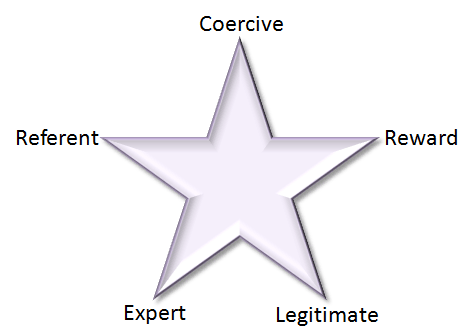Leading & Leadership
Goals
 Your thinking skills can be considered directional skills because they set the direction for your organisation. They provide vision, purpose, and goal definition. These are your eyes and ears to the future, allowing you to recognise the need for change, when to make it, how to implement it, and how to manage it. You find vision by reaching for any available reason to change, grow, and improve. Just as you perform preventive maintenance on your car, you must perform preventive maintenance on your organisation. Do NOT believe in the old adage, "If it ain't broke, don't fix it," for the people who do, go broke! Treat every project as a change effort. Treat every job as a new learning experience.
Your thinking skills can be considered directional skills because they set the direction for your organisation. They provide vision, purpose, and goal definition. These are your eyes and ears to the future, allowing you to recognise the need for change, when to make it, how to implement it, and how to manage it. You find vision by reaching for any available reason to change, grow, and improve. Just as you perform preventive maintenance on your car, you must perform preventive maintenance on your organisation. Do NOT believe in the old adage, "If it ain't broke, don't fix it," for the people who do, go broke! Treat every project as a change effort. Treat every job as a new learning experience. Good organisations convey a strong vision of where they will be in the future. As a leader, you have to get your people to trust you and be sold on your vision. Using the leadership tools described in this guide and being honest and fair in all you do will provide you with the ammo you need to gain their trust. To sell them on your vision, you need to possess energy and display a positive attitude that is contagious. People want a strong vision of where they are going. No one wants to be stuck in a dead-end company going nowhere...or a company headed in the wrong direction. They want to be involved with a winner! And your people are the ones who will get you to that goal. You cannot do it alone!
Good organisations convey a strong vision of where they will be in the future. As a leader, you have to get your people to trust you and be sold on your vision. Using the leadership tools described in this guide and being honest and fair in all you do will provide you with the ammo you need to gain their trust. To sell them on your vision, you need to possess energy and display a positive attitude that is contagious. People want a strong vision of where they are going. No one wants to be stuck in a dead-end company going nowhere...or a company headed in the wrong direction. They want to be involved with a winner! And your people are the ones who will get you to that goal. You cannot do it alone!When setting goals, keep these points in mind:
- They should be realistic and attainable.
- They should improve the organisation (morale, monetary, etc.).
- All the people should be involved in the goal-setting process.
- A program should be developed to achieve each goal.
There are four characteristics of goal setting
- Goal Difficulty: Increasing your employees' goal difficulty increases their challenges and enhances the amount of effort expended to achieve them. The more difficult goals lead to increased performance if they seem feasible. If they seem too high, employees will give up when they fail to achieve them.
- Goal Specificity: When given specific goals, employees tend to perform higher. Telling them to do their best or giving no guidance increases ambiguity about what is expected. Employees need a set goal or model in order to display the correct behaviour.
- Feedback: Providing feedback enhances the effects of goal setting. Performance feedback keeps their behaviour directed on the right target and encourages them to work harder to achieve the goal.
- Participation in Goal Setting: Employees who participate in the process, generally set higher goals than if the goals were set for them. It also affects their belief that the goals are obtainable and increases their motivation to achieve them.
The Six Steps of Goal Setting
Although finding a vision can be quite a creative challenge, the process of getting that vision implemented can be fairly easy if you follow the six steps of:
Vision — Goals — Objectives — Tasks — Timelines — Followup
The Five Points of Leadership Power
Al Capone once said that “You can get much farther with a kind word and a gun than you can with a kind word alone.” However, while almost anyone can use power, it takes skill to use leadership. Leadership power is much more than the use of force. Leadership is influencing others to truly WANT to achieve a goal, while power forces others to achieve a goal.Power refers to a capacity that a person (boss) has to influence the behavior of another so that he or she acts in accordance with the boss' wishes. This power is a capacity or potential as it implies a potential that need not be actualized to be effective. That is, a power may exist, but does not have to be used to be effective. For example, an officer in the Army has certain powers over enlisted personal, but that power does not have to used to be effective. The mere knowledge of an officer's power by an enlisted person has some influence over him or her.A person has the potential for influencing five points of power over another (French & Raven, 1959):
- Coercive Power — Power that is based on fear. A person with coercive power can make things difficult for people. These are the persons that you want to avoid getting angry. Employees working under coercive managers are unlikely to be committed, and more likely to resist the manager.
- Reward Power — Compliance achieved based on the ability to distribute rewards that others view as valuable. Able to give special benefits or rewards to people. You might find it advantageous to trade favors with him or her.
- Legitimate Power — The power a person receives as a result of his or her position in the formal hierarchy of an organisation. The person has the right, considering his or her position and your job responsibilities, to expect you to comply with legitimate requests.
- Expert Power — Influence based on special skills or knowledge. This person earns respect by experience and knowledge. Expert power is the most strongly and consistently related to effective employee performance.
- Referent Power — Influence based on possession by an individual or desirable resources or personal traits. You like the person and enjoy doing things for him or her.
The Five Points of Leadership Power
Al Capone once said that “You can get much farther with a kind word and a gun than you can with a kind word alone.” However, while almost anyone can use power, it takes skill to use leadership. Leadership power is much more than the use of force. Leadership is influencing others to truly WANT to achieve a goal, while power forces others to achieve a goal.
Power refers to a capacity that a person (boss) has to influence the behavior of another so that he or she acts in accordance with the boss' wishes. This power is a capacity or potential as it implies a potential that need not be actualized to be effective. That is, a power may exist, but does not have to be used to be effective. For example, an officer in the Army has certain powers over enlisted personal, but that power does not have to used to be effective. The mere knowledge of an officer's power by an enlisted person has some influence over him or her.
A person has the potential for influencing five points of power over another (French & Raven, 1959):

- Coercive Power — Power that is based on fear. A person with coercive power can make things difficult for people. These are the persons that you want to avoid getting angry. Employees working under coercive managers are unlikely to be committed, and more likely to resist the manager.
- Reward Power — Compliance achieved based on the ability to distribute rewards that others view as valuable. Able to give special benefits or rewards to people. You might find it advantageous to trade favors with him or her.
- Legitimate Power — The power a person receives as a result of his or her position in the formal hierarchy of an organisation. The person has the right, considering his or her position and your job responsibilities, to expect you to comply with legitimate requests.
- Expert Power — Influence based on special skills or knowledge. This person earns respect by experience and knowledge. Expert power is the most strongly and consistently related to effective employee performance.
- Referent Power — Influence based on possession by an individual or desirable resources or personal traits. You like the person and enjoy doing things for him or her.

No comments:
Post a Comment